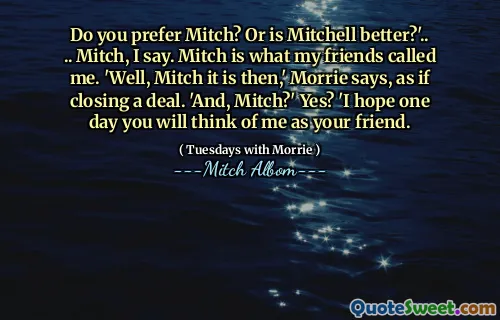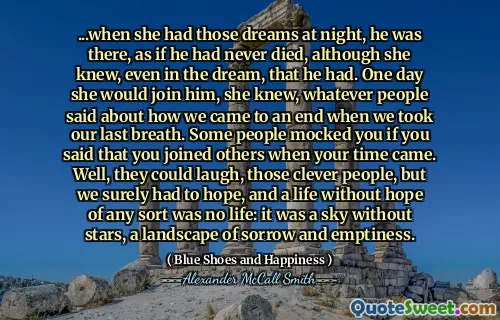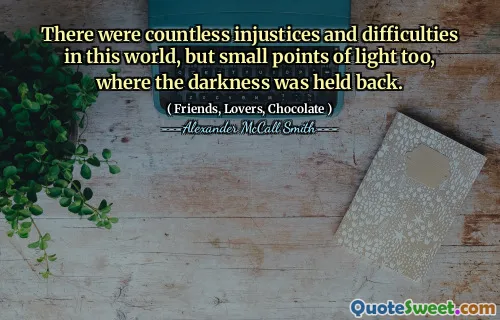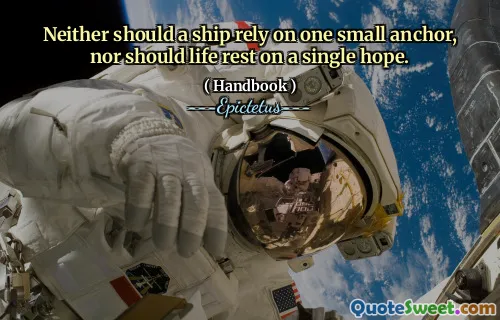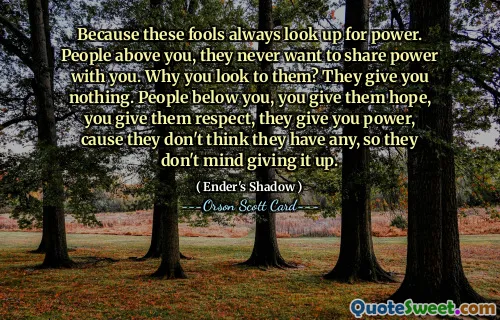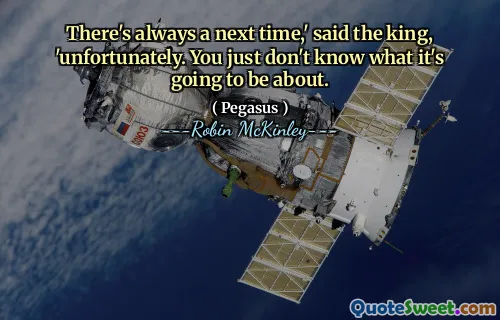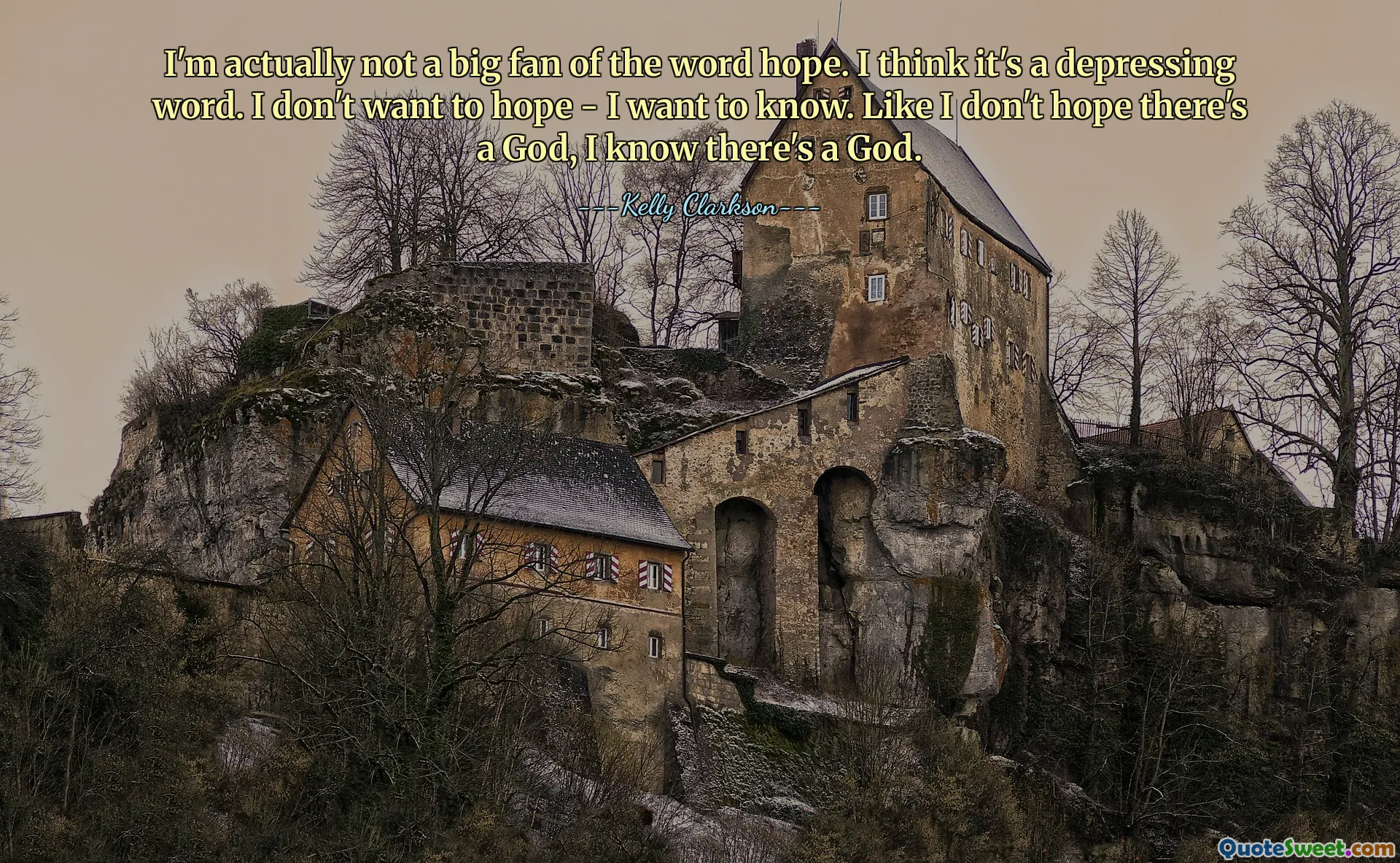
I'm actually not a big fan of the word hope. I think it's a depressing word. I don't want to hope - I want to know. Like I don't hope there's a God, I know there's a God.
This quote presents a compelling perspective on certainty versus hope. The speaker expresses a preference for absolute knowledge over hope, suggesting that hope may carry an element of uncertainty or longing that can sometimes be distressing. Instead of hoping for something, they value factual conviction—knowing. This outlook can be both empowering and challenging. While certainty can provide comfort and a strong foundation for one's beliefs, it may also lead to the dismissal of possibilities and the open-mindedness that hope often cultivates. The sentiment reflects a desire for definitive truth, which resonates with philosophical and theological debates about faith, evidence, and belief. It echoes a perspective that seeks the reassurance of certainty rather than the vulnerability inherent in hope. However, this stance can also be viewed as potentially limiting; hope can inspire resilience, motivate action, and sustain individuals through difficult times, especially when certainty is elusive. Ultimately, this quote invites listeners to examine their attitudes towards hope and belief, questioning whether certainty or hope provides a healthier or more meaningful outlook in the face of life's uncertainties. It underscores a profound commitment to knowledge and conviction, aligning with a worldview that finds strength in certainty while challenging the comforting and inspiring qualities that hope often embodies.






